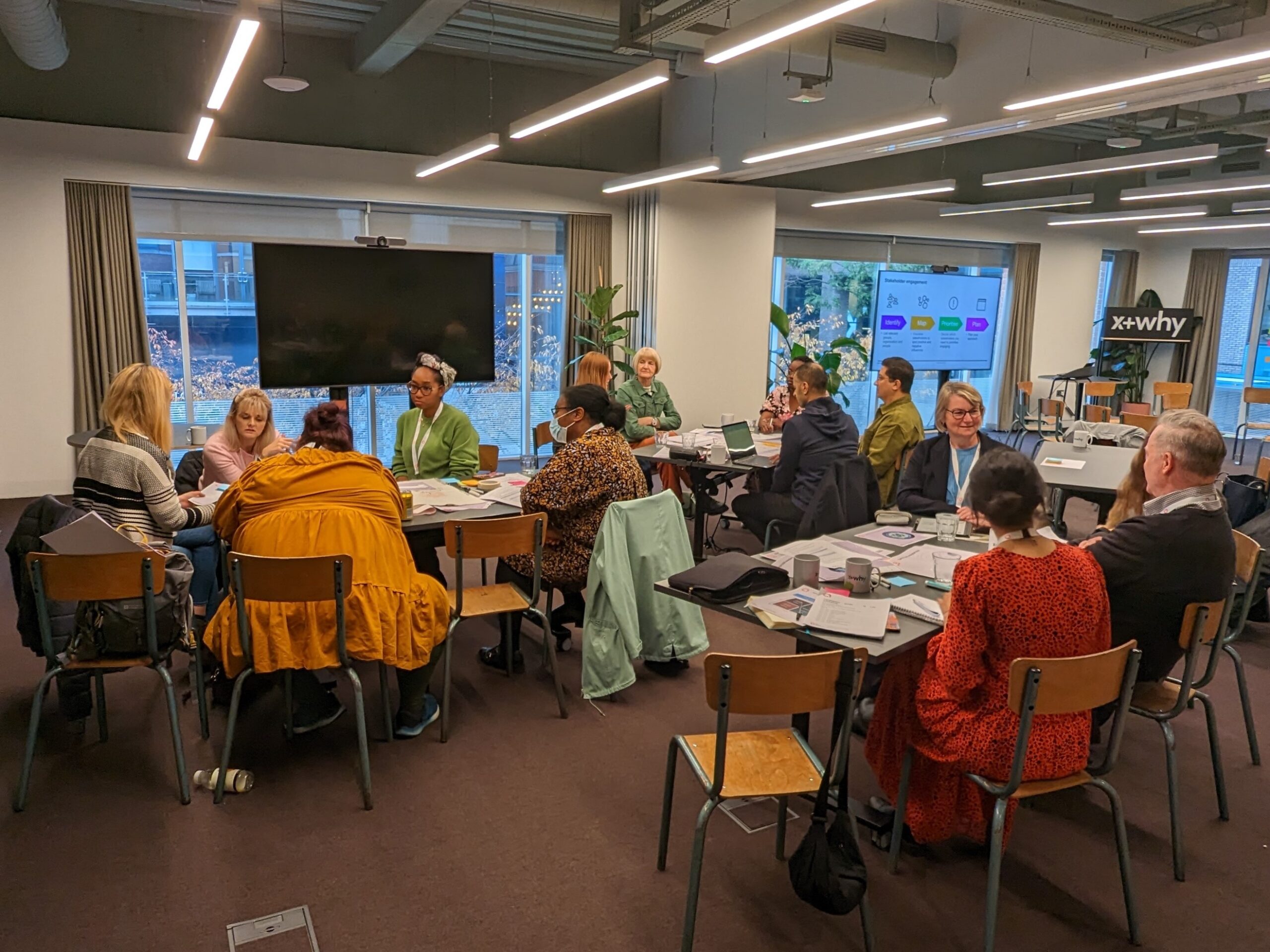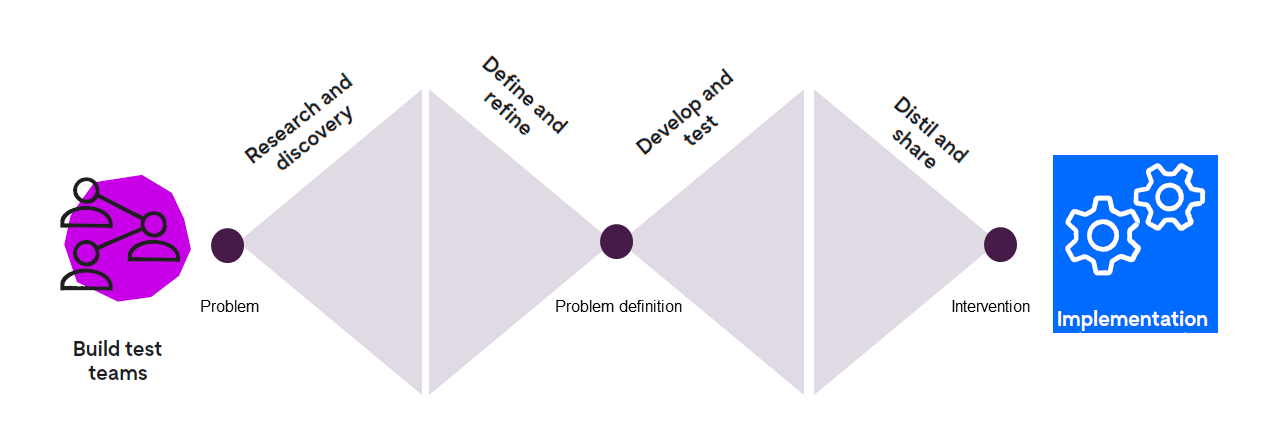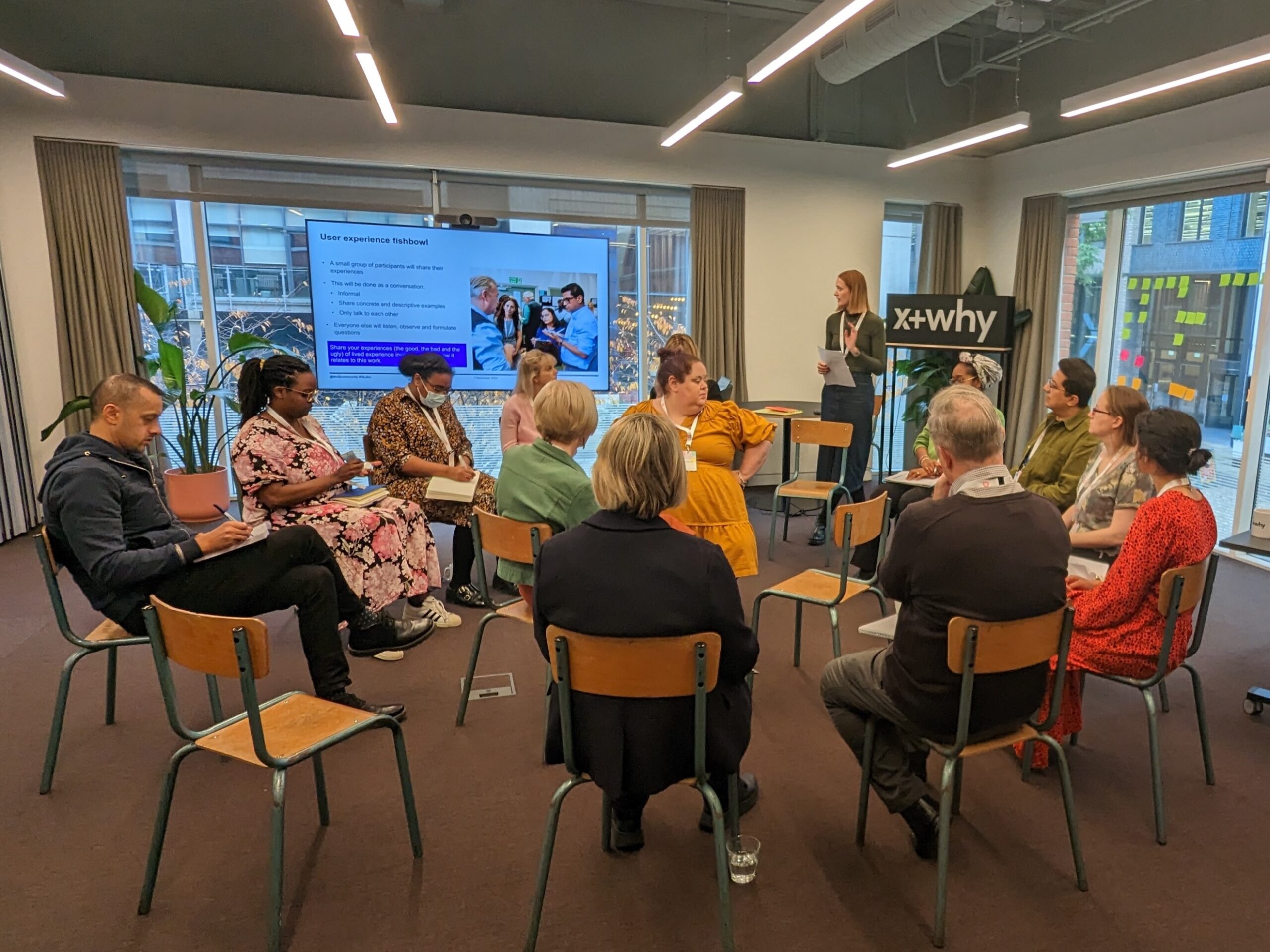Sarah Rae, a lived experience expert and a co-researcher with the Q Lab programme, reflects on a recent Q Lab workshop. The session highlighted the importance of understanding the problem from multiple stakeholders’ perspectives before jumping to solutions. In this blog, she shares her takeaways from the workshop and brings in the perspectives of other Lab co-researchers, who met after the workshop to discuss how the test teams were progressing.
I attended a Q Lab workshop in Birmingham on Wednesday 1 November 2023. For teams working to reduce delays with increased collaboration, this event focused on defining problem statements and increasing stakeholder engagement, including patients as key stakeholders. Read the slide deck from the workshop.

Wearing my co-researcher hat, I was keen to learn what was working well, how the test teams were progressing their work, and if there were any roadblocks. The session came at a pivotal point, just past the midway point between the double diamonds below.

Knowing when to slow down
There is often a temptation in improvement and innovation to jump to solutions and actions. This can be especially true when there are immediate delivery pressures, as we are seeing in the health and care system right now.
But it is also important to know when to slow down. It was particularly interesting for me to observe how some teams were increasing their engagement plans. They understood this would add work and slow them down, but was also critical to their success. Making this decision takes courage. Everyone has blind spots. In my view, it is crucial to reflect holistically on the problem to understand what could prevent ideas from being implemented. It’s important to consider issues from multiple perspectives, including stakeholder requirements.
One of the take-home messages was that the status quo cannot be changed without first winning hearts and minds.
Astrid, a co-researcher with the South Docs Services team, highlighted the importance of keeping an open mind:
[The team are] not going backwards just for the sake of going backwards and trying to prove that what they already thought is going to work. [They are] open to [their original ideas and plans] changing.”
Cleo, a co-researcher with the University College London Hospitals team, observed that the team slowed down to fully understand the challenge they were addressing:
I think they started full throttle and now they’re easing it back and looking at the bigger picture”
Understanding the right problem to address
Having the headspace to see the bigger picture led some test teams to shift their focus. In the workshop, the teams developed a problem statement. This described the issue(s) their research identified, from the perspective of those it affects. They also developed multiple ‘how may we’ statements to describe the potential focus for their work going forward.
The work the teams have done so far has led to some changes in focus. For example, the East of England test team changed their focus from reducing waits in the service to reducing demand for the service, by identifying people whose needs can be met in other ways. They reflected on the value of moving upstream in the pathway. They want to ensure that only people who need the service are added to their waiting list. Their project will involve improving how they identify people who need other types of support and working with referrers and patients to get the right information when they are referred.
Another important focus, especially from the patients’ perspective that I bring to the programme, was how to support people better while on the waiting list or waiting for a referral (sometimes talked about as “waiting well”). This may include ways of keeping in touch with patients, so they do not feel forgotten, providing tips on enhancing their wellbeing during what is a difficult and frustrating time, and supporting their pre-habilitation.
Katie, a co-researcher with the Stockport team, spoke about the value of waiting well with their new pain clinic’s pre-habilitation programme:
[The team are looking at the] value of that time that you’re waiting … as well as reducing times, but also what’s the value of that waiting time rather than somebody sitting on a waiting list? What else could you do for them? To a certain extent you can take people off who weren’t meant to be there, but the people that are meant to be there and need to be there, there’s so much value in what else can we do in this space.”
The main outcome of the workshop conversations was a broader perspective of what ought to be considered, how different stakeholders may view the problems differently and what may be some unexpected obstacles coming up. The teams will be taking this learning into the next stage of their Q Lab work when they will begin to develop and test improvement and innovation ideas.

These discussions were supported by the Lab co-researchers, improvement and lived experience experts, who collaborate with the individual test teams. This is a new role that we are testing in the Lab this year. You can follow all the co-researcher updates on the Q Lab online group.
Comments
Thomas John Rose 13 Jan 2024
Have a look at: https://q.health.org.uk/idea/2022/how-to-achieve-improvement-with-digital-tools-and-new-applications/
May give you some more ideas!
Hilda Campbell MBE 29 Jan 2024
This piece around a simple approach to finding common priorities may be of interest https://www.cope-scotland.org/wellbeing-tips/entry/finding-common-priorities-matter Initially designed during a primary care transformation project, since adapted to various other situations. Happy to offer a session on its use if helpful
Kind regards
Hilda